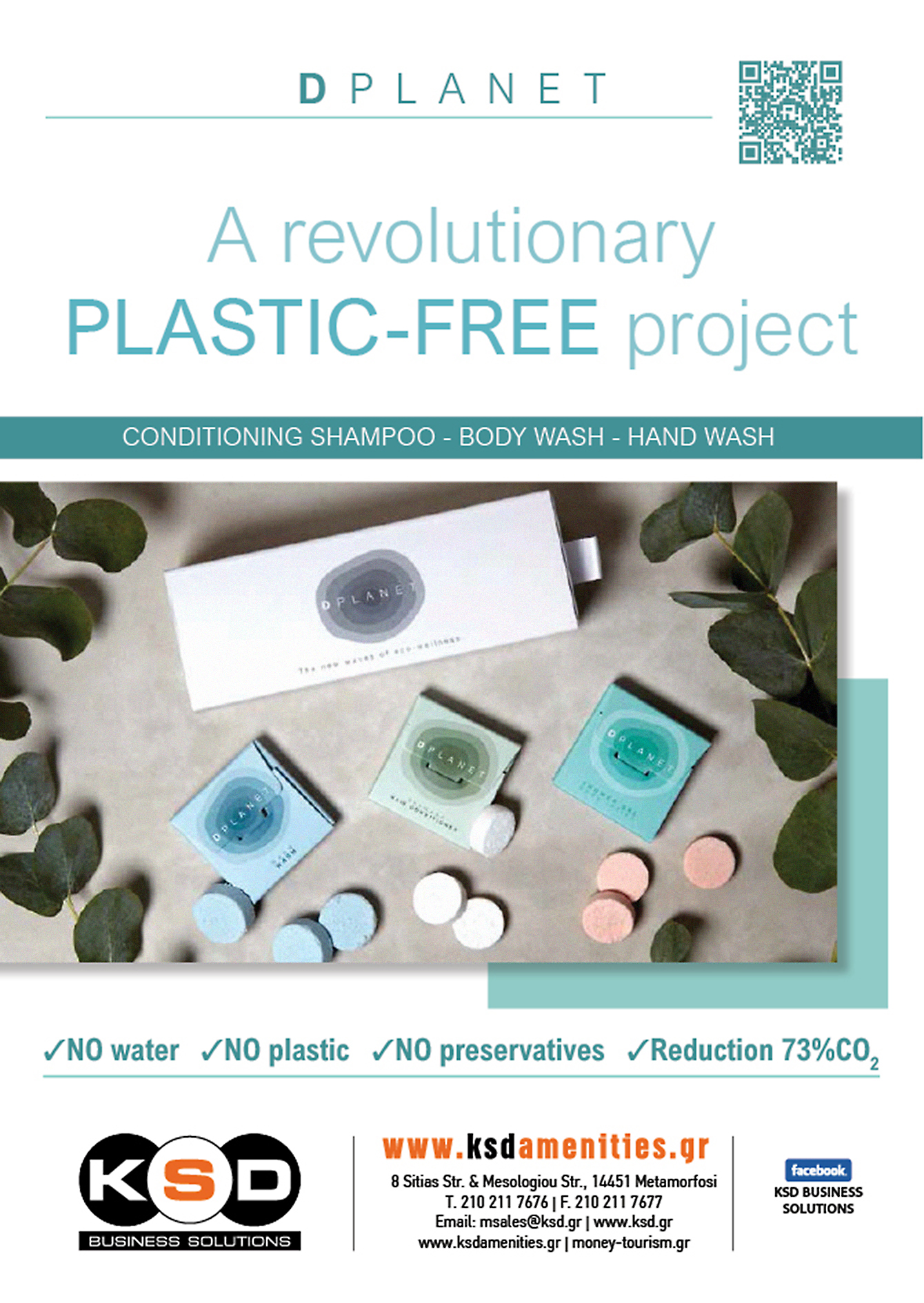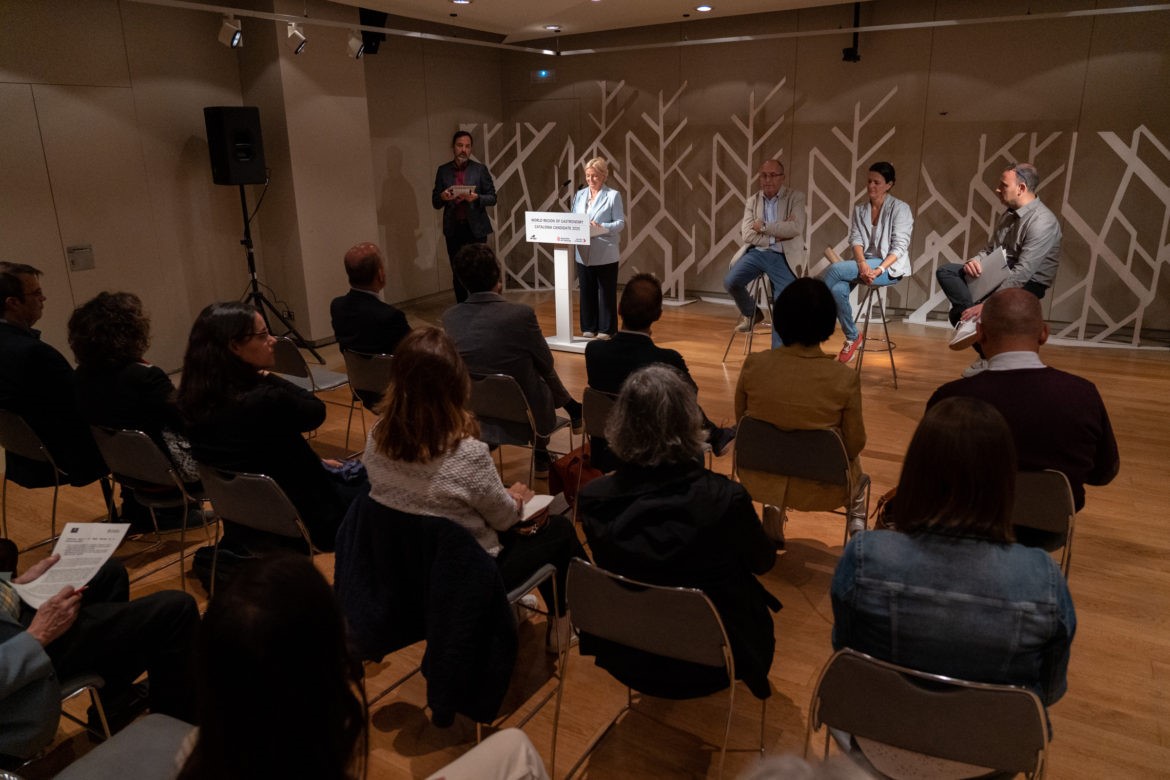An international jury comprising of four international experts, accompanied by IGCAT’s President, Diane Dodd PhD considered the application of Catalonia for the title World Region of Gastronomy 2025. After reviewing the bid book submitted on 31st January 2023, the jury visited the region, 8-12 May 2023.
The aim of the visit was to assess the region’s appropriateness and readiness to host the title in 2025. The jury will prepare a comprehensive report with recommendations to support the region’s journey, and this will be delivered to IGCAT so that IGCAT Board can make the final decision.
Jury composition of IGCAT Experts
Barbara Zmrzlikar, representative of Slovenia, European Region of Gastronomy 2021 looked at Catalonia’s approach to sustainable and balanced tourism, innovation and job opportunities.
Quim Salort, representative of Menorca, European Region of Gastronomy 2022 paid special attention during this visit to environment, nature, health and eco-initiatives that can grow with food loving travellers.
May Britt, representative of Trondheim-Trøndelag, European Region of Gastronomy 2022 considered Catalonia’s approach to culture, citizen engagement and educational initiatives in the region.
Levan Kharatishvili from cultural routes expert of the Council of Europe based in Georgia focussed his attention on visibility, communication, branding, marketing, legacy and evaluation.
Diane Dodd PhD accompanied the jury to ensure that all financial, governance and legal aspects will ensure a long-term legacy for the region.
Note of recognition and thanks
During the visit, the jury met with leading stakeholder organisations from multiple sectors protecting Catalan food tradition, developing culinary innovations and nurturing unique tourism experiences, that combined will help secure a sustainable and healthy food future.
The jury was impressed by how the legacy from Catalonia, European Region of Gastronomy 2016 has reinforced the benefits of inter-sectoral working to ensure that gastronomy, culture, food production and biodiversity have a strong focus in Catalonia.
The jury was moved by Marta Domenech’s (Director General of Tourism for the Catalan Tourism Board) call for more organic, slower, and better quality of life for local citizens that in turn will result in better food experiences for visitors. This is completely in touch with the values and principles of IGCAT that puts the citizen first. We also appreciated Cristina Massot’s affirmation (Deputy Director of Food Industries, Food Quality and Gastronomy in the Department of Climate Action, Food and Rural Agenda) of the departments commitment to sustainable actions to ensure a healthy, safe and resilient food future.
The jury witnessed exceptional creativity in the form of world-class food and wine experiences and were impressed by the passion and knowledge for and of local products. On behalf of the jury and IGCAT, we wish to thank, and congratulate, all the excellent hotels, wineries, hospitality schools, food experiences and restaurants that we had the pleasure to visit and that are each giving visibility to local producers and putting Catalan cuisine on the world gastronomic map:
• Restaurant Ca L’isidre (Barcelona)
• Hotel Yurbban Passage (Barcelona)
• CETT Barcelona School of Tourism, Hospitality and Gastronomy
• Can Moragues Restaurant (La Selva, Costa Brava)
• Peralada Winery (Costa Brava)
• Hotel Spa Terraza (Roses, Costa Brava)
• Restaurant Les Colls (Olot, La Gorrotxa, Girona Province)
• Oller del Mas Winery (Bages, Barcelona)
• L’Algadir del Delta Gastronomic Hotel
• Cuadrat Valley
• Masia de Queralt
All the people the jury met, be they chefs, artists, volunteers, public servants, lecturers or entrepreneurs, have a shared commitment to Catalonia’s sustainable and ecological food future and we commend each and every person for their work and dedication:
Marta Domènech, Director General of Tourism, Ministry of Business and Labour
Joan Gòdia, Director General, Food Industries, Food Quality and Gastronomy, Ministry of Climate Action, Food and Rural Agenda
Cristina Massot, Deputy General Director, Food Industries, Food Quality and Gastronomy, Ministry of Climate Action, Food and Rural Agenda
Ramon Sentmartí, Managing Director of the Agency for the promotion of Catalan food, Ministry of Climate Action, Food and Rural Agenda
Patrick Torrent, Deputy Director of the Catalan Tourist Board, Government of Catalunya
Carles Vilarrubí, President of the Catalan Academy of Gastronomy and Nutrition
Eduard Torres, President of the Executive Committee, Turisme de Barcelona
Lluís Serra, Managing Director of The University College of Hospitality Management and Culinary Arts of Sant Pol de Mar (EUHT StPOL) and President of EUHOFA
Raúl Gisbert, Catalan finalist, European Young Chef Award 2022
Osvaldo Sejas, Catalan finalist, European Young Chef Award 2023
Bea Nubiola, Head of Brand Management, Catalan Tourist Board
Ariadna Ribas, Wine & Food Tourism Brand Manager, Catalan Tourist Board
Rita Ventura, Experiential Marketing Unit, Catalan Tourist Board
Laura Rubia, Wine & Food Tourism Technician, Catalan Tourist Board
Gemma Moliner, Head of Gastronomy Sectoral Solutions and Corporate Communication, Prodeca
Dra. Maria Abellanet, President, CETT, School of Tourism, Hospitality and Gastronomy
David Peguero, Corporate Development Director CETT
Dra. Helena Martín, Directora del Grup de Recerca de Cuina i Gastronomia, CETT
Elisabet Ferrer, General Director, CETT
Nan Ferreres, Directora Escola Tècnica Professional i Estudis de Gastronomia I a tot l’equip del CETT
Andre Achotegui, President of Fundació Emys
Ivette Casadevall, Director of communication, Fundació Emys
Sergi de Meià, Chef, Can Moragues
Elisabet Sànchez, Directora dels Serveis Territorials d’Acció Climàtica, Alimentació i Agenda Rural a Girona, Generalitat de Catalunya
Miquel Martí, Director del Museu de la Pesca i l’Espai del Peix (Fundació Promediterrània)
Cristina Mañas, gerent de la Confraria de Pescadors de Palamós i de l’Organització de Productes Pesquers de Palamós
Francesc Benaiges. Pescador. Membre de la Confraria de Pescadors de Palamós
Sílvia Romero. Cap de Promoció Econòmica de l’Ajuntament de Palamós. (Palamós Peix. Fira de la Gamba de Palamós)
Dr. Francesc Fuster, Director de la Càtedra d’Estudis Marítims (UdG-Fundació Promediterrània)
Joan Lluís Alegret, Antropòleg, Assessor de la Càtedra d’Estudis Marítims (UdG-Fundació Promediterrània)
Glòria Ñaco, Tècnica d’educació i acció cultural del Museu de la Pesca.
Maria Baró, Oenoturism Manager, Perelada
Leo Saavedra, Guide, Perelada
Federico Alvaro Gonzalez, Sales, Perelada
Victor Goitia, Head of Marketing, Patronat Turisme Costa Brava
Josep Serra, properety owner Celler La Vinyeta and member of the Consell Regulador de la DO Empordà
Xavier Agell i Tuser, Head of Services, Secretaria INCAVI
Eloi Montcada, Cluster Manager d’INNOVI (Clúster Vitivinícola Català)
Miquel Gotanegra, Director, Hotel Terraza
Marina Gotanegra, Director Marketing and Sales, Hotel Terraza
Anna Cuadrat, Patronat de Turisme Costa Brava
Lluís García, Director elBulliFoundation
Ernest Laporte, ElBulli1846 Corporate Department
Fina Puigdevall, Head Chef, Les Colls Restaurant
Martina Puigvert Puigdevall, Kitchen Head, Les Colls Restaurant
Carlota Puigvert Puigdevall, Pastry Head, Les Colls Restaurant
Manel Puigvert, Managment, Les Colls Restaurant
Carme Serra, Front of House, Les Colls Restaurant
Pep, Isaac and Abel Peraire Farmers from Soler de n’Hug
Toni Massanés, General Director, Alicia Foundation
Vinicius Martini, Laia Badal and Adriana Gálvez, Innovation and Development Project Heads, Alícia Foundation
Najat Tort, Tourism Services, Diputació de Barcelona
Montserrat Selga and Eva Mendez, Wine Route DO Pla de Bages
Martina Pelfort, Receptionaist, Oller del Mas Winery
Carles Muray, Oenologis, Oller del Mas Winery
Mireia Riba, winner of the Best Spanish Waiter 2022, Oller del Mas Winery
Josep Pere Colat, President Federació de DOP/IGP
Sònia Pina, Federació DOP/IGP
Jordi Marcel Matamoros, President DOP Arròs del Delta de l’Ebre
Jesús Gómez, Director Territorial Services DACC
Sergi Tudela Casanovas, Director General, Política Marítima i Pesca Sostenible
Jose Miquel Campos, Representative, IRTA a l’Ebre.
Joel Castanyé, Chef, Boscana
Joan Capilla, owner and chef at L’Algadir del Delta
Dr Ana Polo, Sant Pau Hospital and Puigvert Foundation
Juli Alegre, Head of Promotion and Marketing, Regional Tourism Board, Lleida Provincial Council
Montse Baró and Manel Simon, Afrucat
Manel Simon, DO Pera de Lleida
Josep Pere Colat (president) and Sònia Pina, Federació DOP/IGP
Rosalba Arrufat, Prodeca
The collective energy and passion of everyone we met in Catalonia has been impressive and the food and wine offer something you can all be truly proud of.
Jury Recommendation
During the three-day visit, the jury recognised many good practises, and we would like to highlight just a few here that are exceptional examples and from which other regions could learn from:
• National Commitment to Responsible Tourism (launched 2023) that provides for the integration of oeno-gastronomic activities in a social, economic and territorial context taking into account the needs and aspirations of local citizens. Tourism products centred on Catalan excellence in gastronomy and wine has an extraordinary potential in this regard, both to boost domestic tourism and draw respectful international visitors to the territory.
• Strategic Food Plan in Catalonia-PEAC (2021-26) inspired by the gastronomy plan created in 2016 under the aegis of Catalonia European Region of Gastronomy 2016 is an exceptional inter-sectoral instrument to ensure sustainable, safe, resilient, healthy and universally accessible food and for Catalonia to be a benchmark region in terms of food excellence both locally and internationally.
• Food and Wine Tourism Plan (2022-27) that aims to position the brand Cuina Catalana, strengthen wine and food storytelling and highlight the importance of cultural heritage linked to wine, food and agricultural landscape in the tourism offer.
• EUHT ST POL who gave their intellectual property and supported IGCAT in organising the 1st and 2nd editions of the European Young Chef Award and have further offered to host the European Young Chef competition in 2025 if Catalonia obtain the title.
• Fundació Emys and Can Moragues promoting circular economy, slow food and educating for biodiversity through a process of land stewardship that we would love to see this developed across the region.
• Museu De La Pesca (Palamos) promoting short fish value chain and cross-sectoral cooperation to raise awareness and ensure the safeguard of the maritime environment for the future.
• D.O. Empordà and wine route supporting the local wine tradition to create memorable visitor experiences and supporting multiple network members.
• El Bulli 1846 Foundation conceptualising the art and science of cooking in an exceptional visitor experience that conserves the memory of culinary creativity and innovations in Catalonia that have influenced the world of culinary arts.
• Soler de N’Hug a family run farm and pioneers in friendly-farming, and taking care of the whole value chain from farm to fork.
• Alícia Foundation whose research into nutritional aspects of food has been recognised world-wide and whose campaigns for good and healthy eating, particularly with children, are remarkable.
• DO Pla de Bages Stone Vats and wine route whose conservation of stone vats and the promotion of a wine route that is preserving landscape, local grape varieties and heritage for future generations as well as visitors is also supporting the activities of multiple member organisations and small businesses.
• Delta Female Rice Producers Cooperative who are highlighting the role of women in rice production over centuries and now using innovation to bring new products to market and mitigating climate change issues.
• Musclarium that is a great showcase platform for educating about local products in an amazing space both for visitors and school groups with the aim to ensure consumer appreciation.
• The Institute of Agrifood Research and Technology (IRTA), where research is helping the local food industry be competitive and meet the challenges while reducing environmental impact.
The governance of the project in the hands of the administration both from tourism and agriculture inspire confidence because it has been clear that everyone involved are passionate about the region and the whole food chain. The three strategic plans guiding processes for the region are reflected in the bid book and will be an important benchmark for a future action plan.
The jury appreciated the synergy and cooperation between public, private, third sector and knowledge/research institutions that they evidenced in the jury visit and that was showcased in the bid book and that came from the legacy European Region of Gastronomy 2016 and IGCAT philosophy.
The jury appreciated that the stakeholders have been frank about their challenges and the need for continued knowledge sharing locally and internationally. Catalonia has an incredible history and resume in culinary arts excellence, nevertheless we witnessed modesty and a down-to-earth desire to constantly strive for better.
Therefore, based on the written application, the presentation and visit to the region, the jury decided that Catalonia should be recommended for the title World Region of Gastronomy 2025 and pass to the final phase of the application process.
The jury will submit in the coming weeks their recommendations to the region and IGCAT Board will take a final decision based on the region’s response. Subject to the region’s response, the jury expects that IGCAT Board will approve Catalonia’s title in June and the jury very much hope to see preparations unfold for the region’s Award Ceremony later this year.
On a final note, the jury agreed that the people and place-based approach is what will distinguish Catalonia as one, if not the top oeno-gastronomic destination by 2025.
About the World/ European Region of Gastronomy Award
The International Institute of Gastronomy, Culture, Arts and Tourism (IGCAT) is the operative body that oversees the management and coordination of the World Region of Gastronomy Award. IGCAT believes that cross-sectoral collaboration will help regions find solutions to current day challenges and thus, the World Region of Gastronomy Award is not only given because a region has great gastronomy but because the whole region is working together to create a more sustainable food future.
IGCAT encourages not only hospitality industries to participate but everyone across the whole eco-system including public, private, NGO and academic institutions.
The first step in applying for the Award is to bring these different entities together. The next stage is to create a bid book that pulls together as many great initiatives as possible so that people within the region themselves can begin to appreciate how rich their resources are. The third stage is a jury visit that concludes with a recommendation for IGCAT Board and a report to help the region in preparing a successful journey.
Candidate and awarded World/European Regions of Gastronomy, guided by IGCAT, are working together to strengthen food security through the celebration of distinctive food cultures; create employment by stimulating creativity and gastronomic innovation; nourish children and adults through culinary and cultural education; drive environmental sustainability in tourism, hospitality and agricultural sectors; support balance and sustainable tourism practices; highlight and support expertise from within rural and urban communities, creating connections and sharing good practises; and contribute to community health and well-being.




